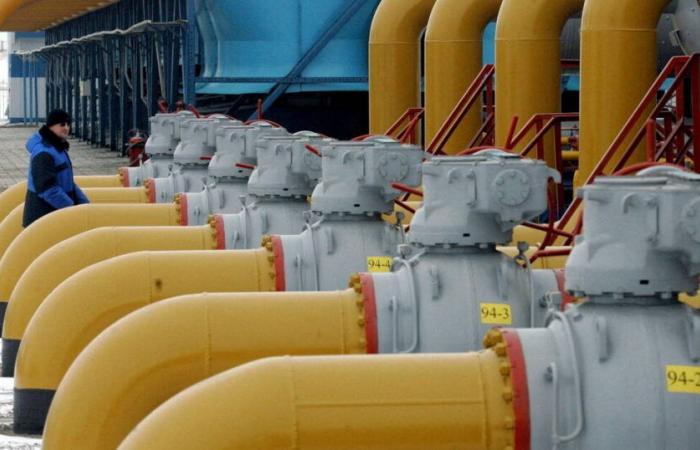The contract signed between Russia and Ukraine before the invasion decided by Putin ended on Wednesday December 1st. A decision that worries Eastern Europe, where Slovakia and Hungary continue to depend on deliveries from Gazprom.
It was announced, it happened: deliveries of Russian gas to Europe via Ukraine definitively ceased on Wednesday morning, after the expiration of a contract signed between the two parties at the end of 2019. “We stopped the transit of Russian gas, it’s a historic event. Russia is losing markets, it will suffer financial losses. welcomed the Ukrainian Minister of Energy, German Galushchenko, quoted by his services in a press release. Gazprom confirmed the information, deploring: “Due to the repeated and explicit refusal of the Ukrainian side to extend this agreement, Gazprom was deprived of the technical and legal possibility of supplying gas for transit through Ukraine from January 1.”
From “energy security” to war
No deliveries were planned for Wednesday, according to data published the day before by the Ukrainian operator GTSOU, noting the expiration of a five-year contract established in 2019 between the Ukrainian company Naftogaz and the Russian giant Gazprom. At the time, Volodymyr Zelensky was delighted with an agreement synonymous with “energy security” and “prosperity for Ukrainians”.
But times have changed radically, and Russia invaded Ukraine in February 2022, a conflict that has since left hundreds of thousands of civilian and military dead and injured. Russia regularly attacks Ukrainian energy infrastructure, plunging millions of residents into the cold and darkness in the middle of winter.
Its daily exports to Europe via Ukrainian territory in recent weeks amounted to some 40 million cubic meters, for a total volume supplied in 2023 of 14.65 billion cubic meters, according to official figures. In this tense context, the price of European gas reached the symbolic mark of 50 euros per megawatt hour on Tuesday, a first in more than a year.
“Drastic impact”
If Europe’s dependence has been significantly reduced since the start of the war in Ukraine, the states located in the East continue to obtain significant supplies from Moscow. According to Ukrainian Minister German Galushchenko on Wednesday, “Ukraine has informed its international partners.” In reaction, Slovak Prime Minister Robert Fico, who remains close to Vladimir Putin and whose country is very dependent on Russian gas supplies, warned on Wednesday of the serious consequences that the end of the transit will have according to him: “Stopping gas transit through Ukraine will have a drastic impact on all of us in the EU, not just the Russian Federation.”
This nationalist leader went to Moscow on December 22 to try to find an urgent solution, provoking the anger of Volodymyr Zelensky, who accused him of wanting “help Putin”. “Diversification has a price and any alternative to Russian gas will be significantly more expensive,” the spokesperson for the Slovak gas company SPP, Ondrej Sebesta, warned AFP.
Hungary receives most of its Russian gas imports via TurkStream, which passes under the Black Sea, and the cessation of transit via Ukraine will only marginally affect it, even if Prime Minister Viktor Orban has said “not wanting to give up” this road.
Among Kyiv’s closest allies, Poland, through its head of diplomacy Radoslaw Sikorski, for its part welcomed “a new victory” on Moscow.
State of emergency in Moldova
With the end of this transit and more than two years after the sabotage of the Nord Stream tubes in the Baltic Sea, Europe will now only be supplied with Russian gas by TurkStream, and its Balkan Stream extension. It also imports significant quantities of Russian liquefied natural gas (LNG) by LNG tankers. In addition, Gazprom must stop delivering gas to Moldova on Wednesday, in the context of a financial dispute with this former Soviet republic which has just re-elected a pro-European president. A sign of growing concern, Chisinau declared a state of emergency after the failure of negotiations with the Russian company.
Gazprom had already stopped a large part of its deliveries to this country after the start of the Russian invasion in Ukraine, now only supplying the pro-Russian separatist region of Transdnistria. But its thermal power plant still provides 70% of the electricity consumed by the entire country, one of the poorest in Europe.






